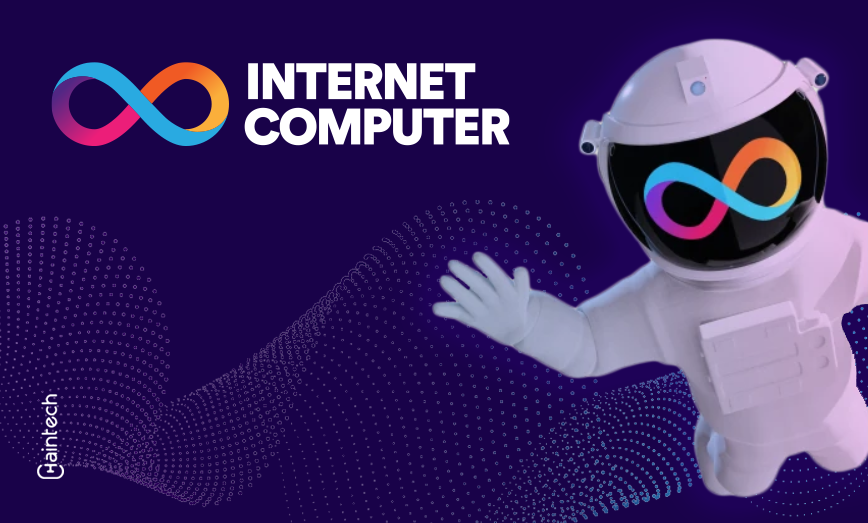Play, Earn, Thrive: 10 Reasons to Embrace The World Of Blockchain Gaming

In recent years, the gaming industry has undergone a remarkable transformation, attributed mainly to the integration of blockchain technology. This cutting-edge technology, known for its decentralized and transparent nature, has paved the way for a new era of gaming experiences. Industry experts and analysts are increasingly convinced that blockchain-based games are not just a trend but are positioned to become the next major innovation in the gaming landscape.
But What’s The Hype All About?
As the name suggests, blockchain games are a unique category of games that leverage blockchain technology. Unlike traditional games, where control is centralized, blockchain games distribute ownership across a network of systems.
With their unique blend of decentralized architecture and secure smart contracts, such games have changed how players interact with virtual worlds. Unlike traditional games, where ownership of in-game assets is restricted by centralized control, blockchain games offer a groundbreaking solution: true ownership. Incorporating blockchain technology ensures that players have verifiable ownership of their in-game items, characters, and assets. This innovative approach empowers players to trade, sell, or leverage their virtual possessions beyond the confines of a single game, enhancing their engagement and investment in the gaming ecosystem.
As evidence of its burgeoning potential, the current market size of blockchain gaming has been evaluated at a staggering USD 7.89 billion. This valuation underscores the rapidly increasing adoption and investment in blockchain games across the globe. Investors and gaming enthusiasts are noticing the substantial growth opportunities this emerging sector presents.
Top 10 Reasons To Shift Your Focus To Blockchain Games
Let’s delve into the distinctive factors that set blockchain-based games apart from the rest without any further ado.
1. Ownership of Digital Assets
One of the most captivating and transformative features inherent in blockchain-based games is the concept of true ownership. Unlike the conventional gaming landscape, where your hard-earned in-game items, characters, and assets often remain under the control of the game’s developer or publisher, blockchain games fundamentally alter this dynamic. Within blockchain games, these coveted digital possessions find their secure abode on a decentralized blockchain network, giving you the right to have true ownership. This ownership is secured by smart contracts, ensuring that your hard-earned items are not subject to arbitrary removal or changes.
2. Play-To-Earn Opportunities
Blockchain games have pioneered a groundbreaking concept known as “play-to-earn,” which not only challenges but fundamentally transforms the traditional gaming paradigm. In the conventional gaming model, players invest significant time and effort into grinding through levels, completing quests, and accumulating in-game rewards. However, the value of these rewards typically remains confined within the game’s ecosystem, lacking real-world significance.
3. Player Engagement & Governance
Blockchain games are redefining player engagement by embracing decentralized autonomous organizations (DAOs) as a cornerstone of their governance structure. DAOs distribute decision-making power across the entire gaming community. Through voting mechanisms facilitated by smart contracts on the blockchain, players have a direct say in matters such as game updates, changes, and additions. This revolutionary inclusion transforms players from mere consumers into co-creators, fostering a sense of ownership over the virtual worlds they inhabit.
4. Interoperability Between Games
In the conventional gaming landscape, each game typically operates within its own closed ecosystem. Your achievements, items, and currency are confined to that specific game and lack any meaningful utility beyond its borders. Blockchain games, however, break down these walls through standardized tokens or assets that hold value not just within a single game but across multiple games and platforms. Imagine a scenario where the rewards you’ve diligently earned in one blockchain game can be effortlessly transferred and redeemed within an entirely different gaming environment.
5. Gaming Economies with Real Value
Blockchain games enable the creation of dynamic in-game economies with real-world value. This innovation is fueled by players engaging in the buying, selling, and trading of digital assets within the game. These assets are recorded on an immutable blockchain, creating a transparent and secure ledger that mirrors real-world economics. As demand and supply dynamics come into play, a thriving secondary market emerges. This market is characterized by digital assets — ranging from characters and items to land parcels — that hold intrinsic value and can be exchanged for real-world currency.
6. Valuable Collectibles & Assets
Blockchain games have harnessed the potential of non-fungible tokens (NFTs) to introduce a fascinating dynamic that transcends the world of traditional gaming. These NFTs, cryptographic tokens representing unique digital assets, have unlocked a captivating dimension that has redefined players’ perspectives on, interactions with, and attachments to in-game items. Amidst this innovation, NFTs of rarity have emerged as digital testaments of ownership, encapsulating the essence of distinct and unparalleled in-game possessions. Yet, their significance extends even further as NFTs have evolved into symbols of honor within the gaming community, serving as trophies that players proudly exhibit to underscore their skill, devotion, and accomplishments.
7. Player Empowerment
The traditional gaming landscape has been marked by centralized control, with the game’s creators and publishers dictating its evolution. This structure has often left players with minimal sway over the game’s direction, updates, and features. However, blockchain games have initiated a profound departure from this norm, granting players unprecedented empowerment and influence over the gaming experience.
8. Manipulation-Free Transactions
Transparency and security take center stage as every transaction and alteration within a blockchain game is meticulously recorded on an immutable ledger. This ledger, visible to all players, serves as an indelible record of every move made in the game. Such visibility dispels shadows of doubt, ensuring the game’s economy operates on a level playing field. These core features extend to every virtual asset, character, or in-game item, illuminating their journey and provenance, from creation to trade.
9. Games & Assets Creation
Contrary to the traditional gaming landscape, where game creation was confined to established studios and developers, blockchain systems are characterized by their decentralized nature, allowing anyone with the requisite skills and vision to build on top of them. The inherent openness and statelessness of blockchain systems unlock a world of possibilities for players to actively participate in creating games and virtual assets within the blockchain gaming ecosystem. This transformative dynamic brings a new era of player-driven innovation, enabling individuals to shape their gaming experiences, create new content, and contribute to the expansion of the virtual universe.
10. Open Participation
One of the defining characteristics of public blockchains is their unstructured and open nature. Unlike closed systems that restrict access to a select few, public blockchains invite anyone with a mobile phone and internet connectivity to join in. This fundamental inclusivity upends traditional barriers that have often marginalized individuals. With this openness, public blockchains represent a paradigm shift in how information and participation are democratized, offering unparalleled accessibility and opportunities for individuals across the globe.
The infusion of blockchain technology brings a monumental shift in the gaming world, elevating it from a mere pastime to a thriving ecosystem. Within this innovative landscape, players are no longer confined to the role of participants; they become active stakeholders who can collect, own, and actively shape the virtual world they inhabit. So, would you take the leap into this realm of endless possibilities and become an integral part of a revolution that’s redefining the very fabric of gaming?









